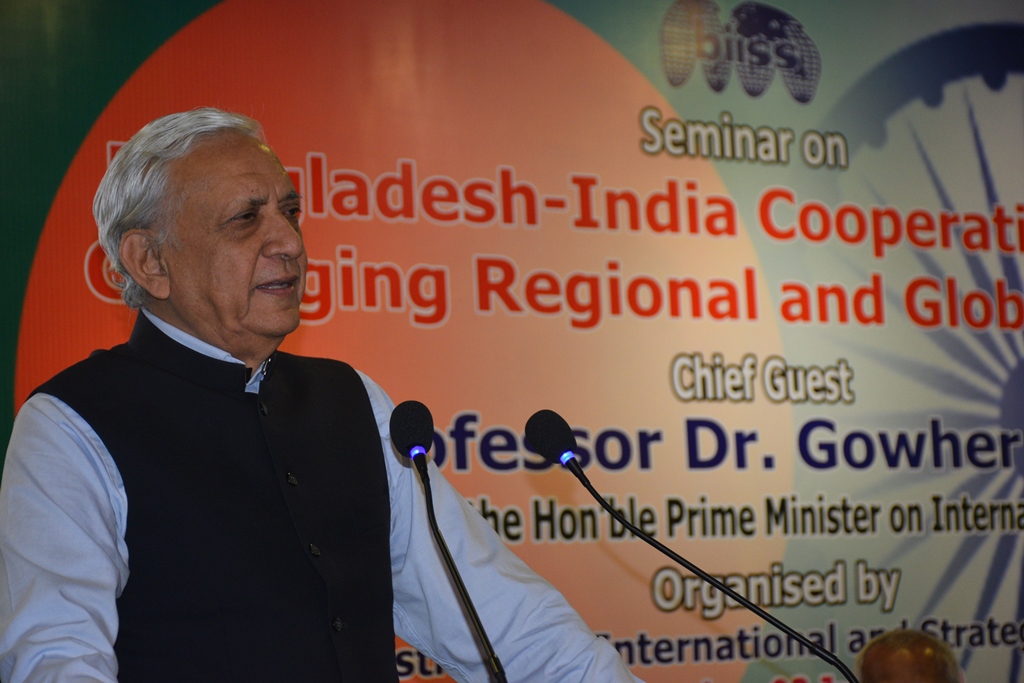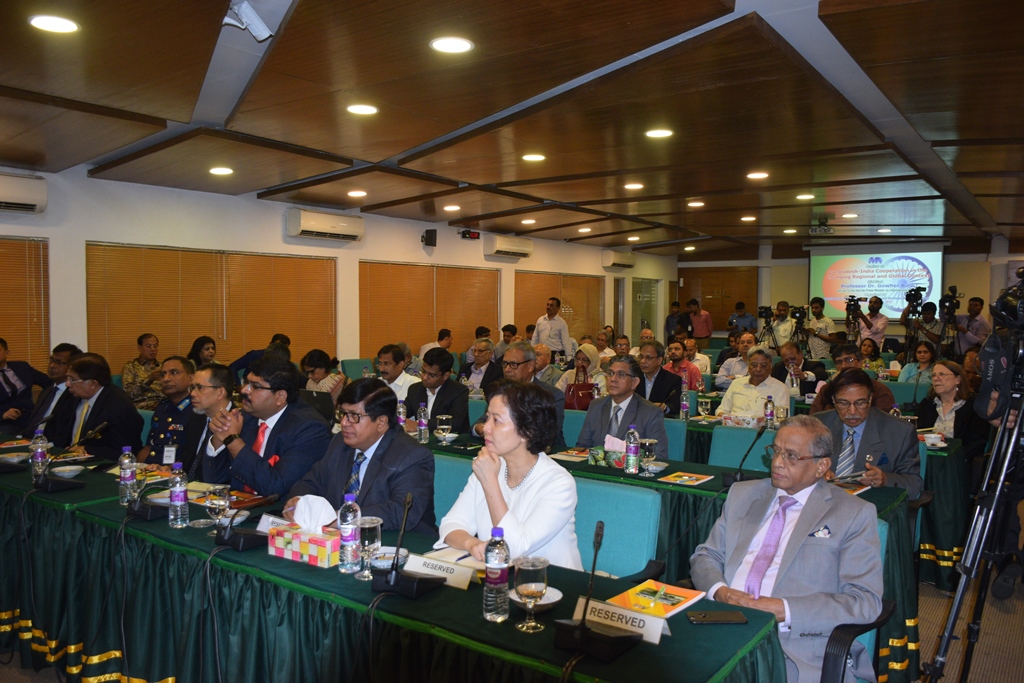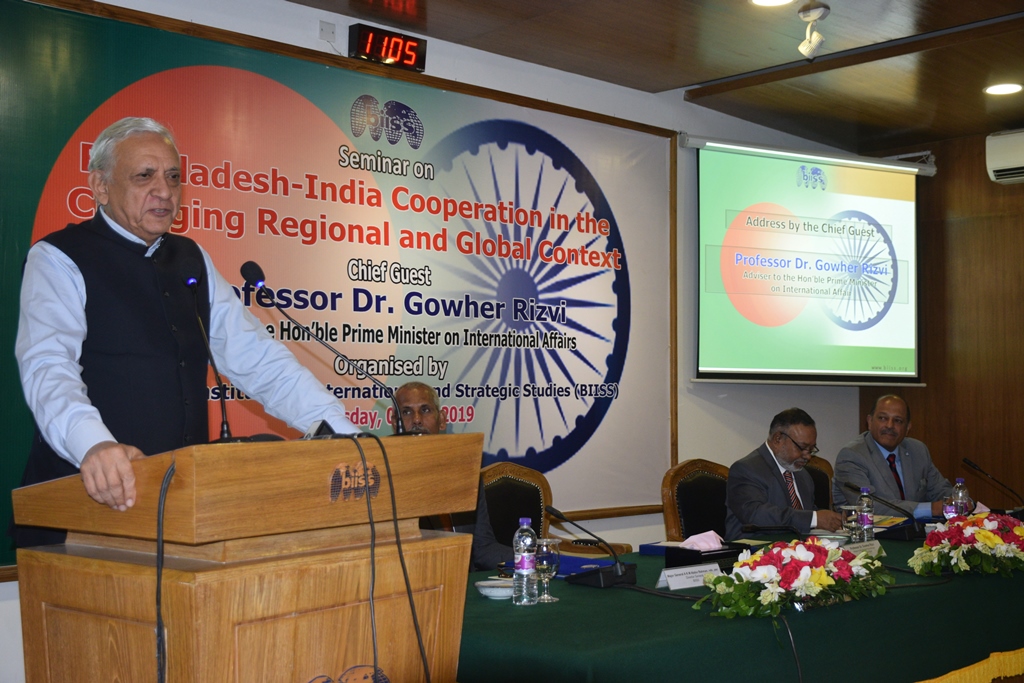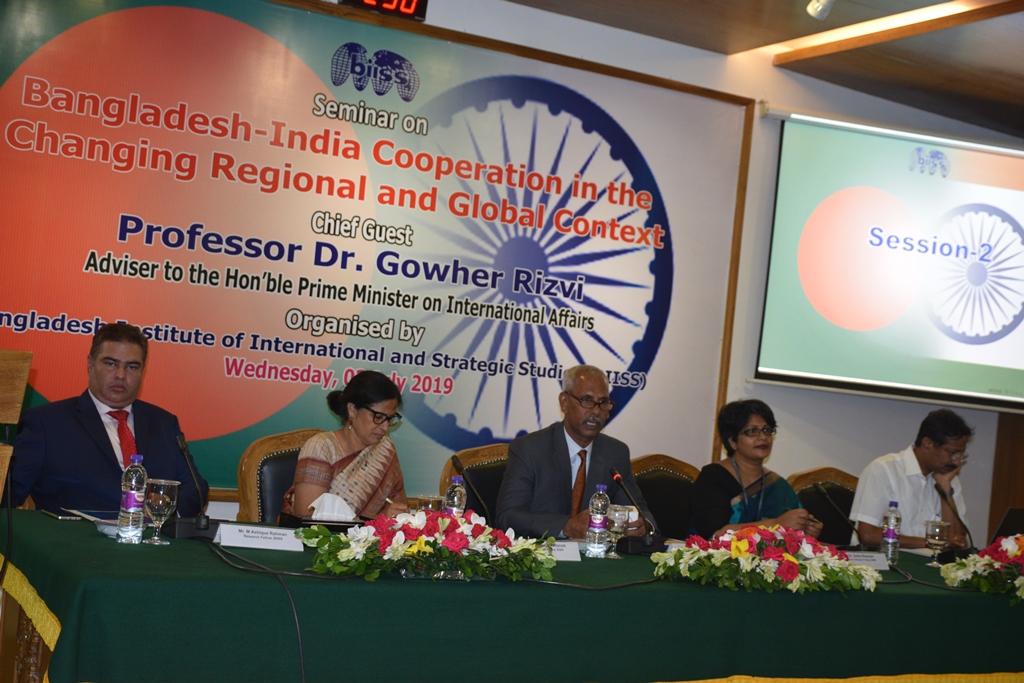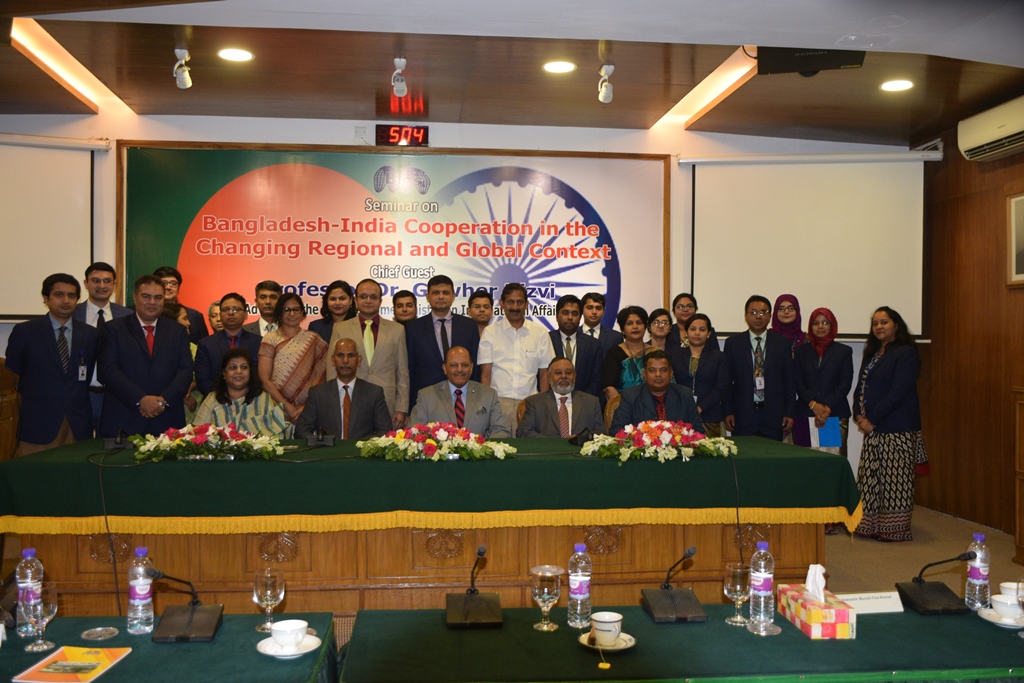Seminar on Bangladesh–India Cooperation in the Changing Regional and Global Context on 03 July 2019
DATE: 2019-07-03
Bangladesh Institute of International and Strategic Studies (BIISS) organized a seminar on Bangladesh – India Cooperation in the Changing Regional and Global Context on 03 July 2019 at BIISS auditorium. H.E. Professor Dr. Gowher Rizvi, Adviser to the Hon’ble Prime Minister on International Affairs was present as the Chief Guest. Ambassador Munshi Faiz Ahmad chaired the inaugural session. Major General A K M Abdur Rahman, ndc, psc, Director General, BIISS, and Ambassador Sujan R. Chinoy, Director General, Institute for Defence Studies and Analyses (IDSA) delivered the introductory remarks.
Chief Guest of the Seminar Professor Dr. Gowher Rizvi, Adviser to the Hon’ble Prime Minister on International Affairs, mentioned that Bangladesh and India have witnessed remarkable progress in cooperation over the last decade in different areas like connectivity and infrastructure development, energy and security cooperation, and people-to-people contact. He expressed that Bangladesh is looking forward to jointly celebrating more success stories of collective endeavours between India and Bangladesh in the coming days. He said that even though the world is going through a turbulent phase, there is hope for better tomorrow because the world is turning from a unipolar world order to a multipolar one. In this reality, Bangladesh wants to join Indo-pacific initiative, but it also cannot ignore the BRI. He noted that Bangladesh did not expect India to go beyond its own national interest to support the Rohingya issue, though he warned that if the issue is not handled properly, it can also pose serious security threat, and destabilize the whole region.
Major General A K M Abdur Rahman, DG, BIISS highlighted on the long-standing relationship between Bangladesh and India. He focused on the importance of the bilateral relations between the two counties to explore every opportunity to work together to guarantee all potential enhancements of this relations for the sake of mutual progress and prosperity. He added that Bangladesh-India relations have come a long way in developing a mature relationship based on mutual necessities and complementarities. The landmark visit of Prime Minister Sheikh Hasina to New Delhi ushered a new era in our bilateral relations to forge closer ties of goodwill. Successive initiatives and achievements since then have driven our relationships into new heights. Cooperation has increased in the areas of energy in terms of electricity import from India, which can be a stepping stone for the regional electricity grid in South Asia.
Ambassador Sujan R. Chinoy, DG, IDSA mentioned about the warm relationship between Bangladesh – India. Both countries are working to strengthen the scope for connectivity, trade and economic cooperation, and enhancing security cooperation. He stated that protectionism is not only for ensuring state’s national interest, rather it is also essential for regional trade arrangements. He added that greater intraregional trade and investment flow is possible as it is identified that Bangladesh needs India’s FDI participation in 13 areas. Besides, Bangladesh and India have made progress in airspace and coastal shipping connectivity as well. He also opined that bilateral impediments in SAARC can be overcomed with trust and confidence building measures. His speech reflected the neighbourhood first policy of India which believes in cooperative relation within a peaceful territory.
Ambassador Munshi Faiz Ahmad, Chair of the Inaugural Session, noted that in the last five years, Prime Minister Narendra Modi and Sheikh Hasina held 10 meetings, jointly inaugurated 19 projects and signed over 90 bilateral agreements in different sectors. And as one of the major development partners, India has extended 3 lines of credits to Bangladesh in the last 7 years amounting US $ 8 billion. In the last five years, total trade between the two countries has grown by more than 17 percent. In future, Bangladesh is eagerly looking forward to an early conclusion of the Teesta Agreement, as it will open up newer opportunities for cooperation.
In two sessions of the Seminar eight presentations were made in four different themes. Two presentations were made in theme 1: “Trade, Investment and Economic Cooperation” while the presenters were Dr. Mahfuz Kabir, Research Director, BIISS and Mr. Rajorshi Roy, Research Analyst, IDSA. Theme 2 was “Bangladesh-India Maritime Cooperation” while the presenters were Dr. Smruti S Pattnaik, Research Fellow, IDSA and Mr. ASM Tarek Hasan Semul, Research Fellow, BIISS. The third theme was “Enhancing Security Cooperation between Bangladesh and India” and the presenters were Dr. Smruti S Patanaik, Research Fellow, IDSA and Mr. M Ashique Rahman, Research Fellow, BIISS. Theme of the fourth session was “Managing Water Resources” while the presenters were Dr. Sufia Khanom, Senior Research Fellow, BIISS and Dr. Ashok Behuria, Senior Fellow, IDSA.
The seminar included two lively open discussion sessions where senior officials from different ministries of Bangladesh, representatives from different foreign missions, business personalities, media, academia, researchers, and teachers from various universities participated and expressed their valuable opinions and observations on the subject. They expected a strongly bonded relationship between Bangladesh and India in the field of development and mutual cooperation.


